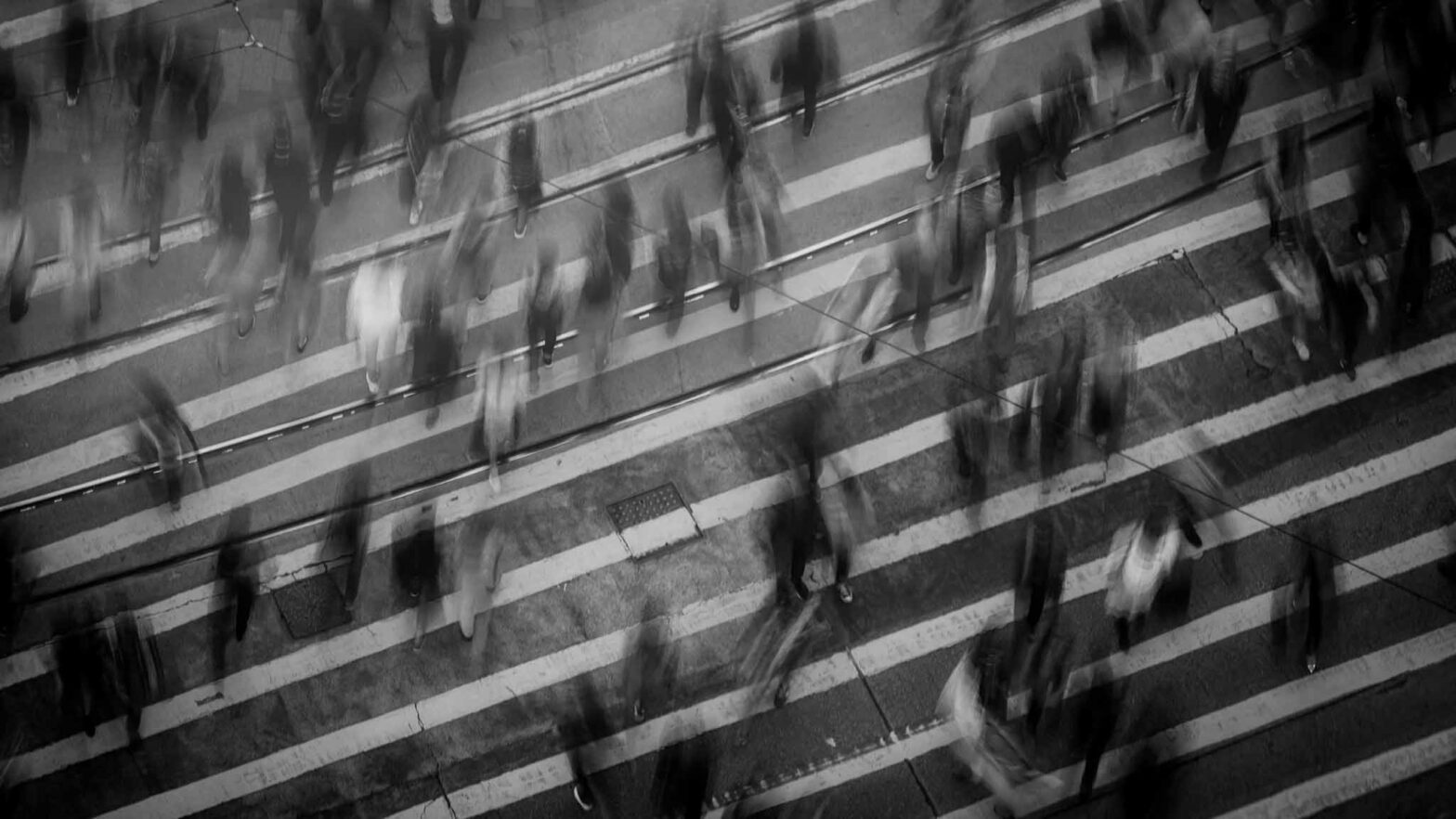
Why do we behave in certain ways every day? Why do we do things as per the expectations of our society?
Because society creates pressure on us. A society does so to remain functional, stay in order, and make sure of its stability.
So what are the ways through which society creates pressure on us? Let’s look into some of those:
Social Norms
Social norms are kind of unwritten rules that tell us how to behave in a particular situation. They are all around us and we observe them in everyday interactions.
Here are some examples of Social Norms to understand them better:
Greeting people: When you meet new people or visit your friends or family, you greet them. It is a social norm to give respect to others. If you don’t do it, you can be seen as a rude person.
A Wedding: When you go to a wedding, you are expected to follow social norms about what to wear at different events.
Other social norms related to weddings could be gift expectations and following certain rituals.
If you attend a wedding in unconventional attire or you don’t want to give a gift, you might feel pressure due to breaking these norms.
Job interviews: You are not expected to come to an interview in pajamas or wearing funky attire.
You are expected to wear formal as per societal norms set for job interviews. Similarly, you are expected to say or act in an interview appropriately.
These job-related social norms intend to promote professionalism and create pressure to conform.
What the research says?: A classic study known as the Asch Conformity Experiments demonstrated how individuals tend to yield to majority group judgement, even when that judgement is wrong.
This research focuses attention on the power of social norms in shaping individual decision-making.
So, social norms help us function smoothly in society. However, pressure to conform to norms can make us feel weird. If we act differently, even if it is harmless, we may be ostracized by society or a faction of society.
Social Comparison
Comparison is everywhere in our society. Every day we compare ourselves with others.
Different actors of society tease us daily. We want to eat what they eat. We want to imitate their wear. We want to travel or do things like them. We want to possess materials like them.
Let’s see some examples of social comparison that create pressure on us:
Social media: When people see their friends’ curated posts about vacations, promotions, and great lifestyles, they feel inadequate about their own lives.
People compare their progress in life with their friends’ progress shown on social media. Now, they want to achieve the same or do better than them.
The workplace: You have noticed social comparison in your workplace many times. People compare their salaries, titles, or job perks with their colleagues.
Such comparisons at the workplace can lead to feelings of dissatisfaction, and it can lead to creating unhealthy competition that is not productive.
What the research says?: A research “Social comparison, social media, and self-esteem” indicates that there is a link between heavy social media use, increased social comparison, and decreased self-esteem.
This research highlights the negative impact of the “comparison trap” on people in our digital age.
Parental and Familial Expectations
Families have expectations from their members. Expectations like what you should do, how you should behave, and what you should achieve.
Such familial expectations are a positive force and motivate us to succeed. However, it can also create pressure on us to do things that we don’t want to do.
Like following a lifestyle that we may don’t like, or following a belief system that we don’t believe in anymore.
Let’s look into a couple of examples of Parental and Familial Expectations:
Choice of major or education stream: Many parents push their children towards a stable career field like engineering or medicine.
They won’t support their children’s passion for the arts, which they see as less financially secure.
Religious traditions: Families may pressure grown children to continue practicing childhood faith rituals and traditions. Even if those children don’t want to follow them. Such pressures can lead to internal conflict.
What the research says?: In a research “Helping or hovering? The effects of helicopter parenting on college students’ well-being”, it is shown that when parents have high and rigid expectations for their children’s career paths, their children feel higher level of anxiety.
These children may even have difficulty discovering their professional interests.
Peer Pressure
Peer pressure is a powerful influence, especially on young minds. Things that you don’t normally want to do, peer pressure can force you to do so. You feel obliged because you have a keen desire to fit in with your friends or a group of people.
With peer pressure, you can become hesitant to pursue your interests. You fear expressing your individuality for fear of rejection from your peers.
Here are some examples of peer pressure:
Trying a new substance: At a party, friends might pressure someone to try a drug that they have never used. At such a moment, pressure is so high that despite showing hesitation, they may give in.
Such people find it hard to say “No” because of fear of being ostracised from the group.
Fashion choices: To fit in a group, teenagers may all adopt a certain brand of clothing or extreme style. If a group member doesn’t like to follow the trend, they give in to peer pressure and stay quiet.
What the research says?: An extensive research “Estimating peer effects in adolescent smoking behavior: a longitudinal analysis” provides insights into how peer pressure influences adolescents to start and continue substance use. Our peers and friends pressure us into risky behaviors.
Marketing and Advertising
Marketing and advertising is a powerful tool through which society creates pressure on us. Society constantly bombards us with messages and ads about what we should eat, what we should wear, what we should buy, or what we should look like.
When we constantly see, hear, or read such messages, we feel that we are missing things in our lives. We feel societal pressure to conform to a certain image. We develop a desire for material possessions that may not be realistic or necessary.
Let’s look into some examples here:
“Perfect” bodies: Whether you watch TV, read magazines, or are active on social media, you see ads that constantly portray unrealistic body types for both men and women.
When we see such ads, we feel that we don’t have those body standards and feel pressure to become like them. Such societal pressure leads to people buying diet products, workout equipment, or even considering cosmetic surgery.
Lifestyle portrayal: Advertisements of home decor and travel tell you how your home should look like and how your ideal travel should be. They promote expensive lifestyles.
When people see such advertisements, they may feel pressure to overspend to match that kind of lifestyle. If they don’t do so, they may experience dissatisfaction with their current modest life circumstances.
What the research says?: A study “The role of the media in body image concerns among women: a meta-analysis of experimental and correlational studies” states that there is a correlation between exposure to idealized images in advertisements with negative body image. Such advertisements cause disordered eating behaviors, particularly in women.
Conclusion
We can’t deny the fact that Societal pressures are shaping our lives.
Societal pressures serve purposes like maintaining order and stability, motivating people to strive for goals, contributing to society, and achieving success.
Societal pressures also promote safety measures and ethical conduct. They protect individuals and foster a sense of security within the society.
However, societal pressures should not strangle individuality. Because, under pressure to conform, people can limit their creativity or self-expression. It discourages people from being different. They may find it hard to challenge established norms.
There is a need to find the balance.
When society promotes critical thinking, celebrates diversity, and prioritizes well-being, it helps us in harnessing the positive aspects of social pressure while mitigating its harmful effects.
Ultimately, navigating societal pressures effectively allows us to contribute meaningfully to society while staying true to ourselves.
Photo by Mike Chai on Pexels
2024 © socialexperiencehub.com. All rights reserved.






